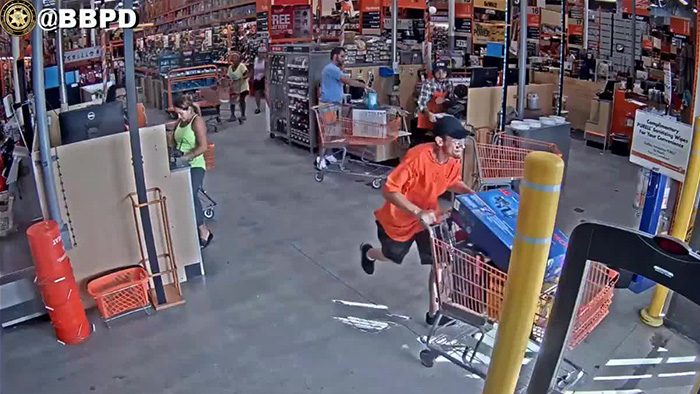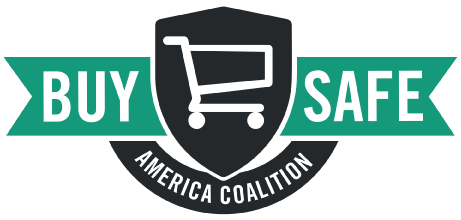The INFORM Consumers Act of 2020
Integrity, Notification, and Fairness in Online Retail Marketplaces for Consumers

The free market has transformed the way Americans shop. Consumers are benefiting from new retail trends in both physical retail and e-commerce. Part of this transformation is the exponential growth of online marketplaces run by companies like Amazon and Facebook. While these dominant platforms have the power to connect legitimate small businesses with new customers, they lack oversight and are being exploited by unscrupulous sellers and criminals selling stolen and counterfeit goods.
The time is now for Congress to modernize consumer protections laws by requiring online marketplaces to collect and verify basic seller information, and for sellers to provide that information to consumers. Basic transparency and verification requirements will not hurt legitimate businesses but will make it harder for bad actors to deceive consumers. It will also provide law enforcement with an important tool to track and prevent these illicit sales. Now is the time to enact common-sense measures that promote safety, transparency, and accountability.
The Growing Cost of Counterfeits and Organized Retail Crime
The sale of fraudulent goods is a $600 billion criminal enterprise according a recent report by the Department of Homeland Security. News stories are replete with consumers buying products on dominant online marketplaces that are stolen, unsafe, deceptively labeled, expired or even banned by federal regulators.
Community retail storefronts and their employees are often put in harms way as professional criminals aggressively confront employees and forcebily steal thousands of dollars of merchandise to quickly resell on these dominant platforms.
Legitimate businesses lose billions of dollars a year due to organized retail crime and counterfeits at a time when many are struggling to stay afloat.
Criminals Exploit Anonymity of Dominant Online Platforms
Law enforcement has identified the sale of counterfeit and stolen goods as a growing problem. The sale of stolen, fake and pirated goods is run by extensive and complex criminal enterprises. Not only is there a negative impact on legitimate companies and government revenues, but illicit products are often sub-standard, causing health problems and injuries, even proving fatal.
Criminal enterprises use the anonymity of marketplace platforms to deceptively market fake products or quickly move stolen goods. In either case, these are products that would never be allowed on a store shelf or a legitimate retailer’s website.
These organized criminal groups make huge profits through illicit trade with minimal risk. Law enforcement has noted the link between this illicit trade and other types of crime, such as human trafficking, drug trafficking, corruption, bribery and money laundering.
Big Tech Marketplaces Have Not Made Changes Voluntarily, They Profit from Inaction
Many third-party online marketplaces remain fiercely opposed to strong verification and accountability laws that would empower consumers and law enforcement with information, making it harder for unscrupulous sellers and criminals to profit from these illicit transactions.
The claim by dominant online marketplaces that collecting and verifying basic seller information is too difficult, too complicated, or too burdensome is unfounded, as many third-party marketplace platforms employ some of the most sophisticated data scientists and logistics professionals in the world.
Dominant online marketplaces make commissions and fees every time a stolen, counterfeit, or unsafe item is sold on one of these platforms. Big Tech cannot be left to solve a problem from which they currently generate immense and growing profits. Congress can solve this problem and put transparency and consumer safety first.
The Solution: Protect Workers, Consumers, and Legitimate Businesses, Require the Verification of Sellers
The Integrity, Notification, and Fairness in Online Retail Marketplaces for Consumers (INFORM) Act will shine a bright light on the dark corners of the Internet, and make it much more difficult for fraudsters and criminals to anonymously sell counterfeit and stolen goods.
The INFORM Act is quite simple. It will require online marketplaces to collect and verify third-party sellers’ government ID, tax ID, bank account information and contact information and require high-volume sellers to disclose contact information to consumers.
Removing the anonymity on these platforms by creating basic accountability measures will protect consumers from illicit goods, aid law enforcement in their efforts to track organized crime, and make it harder for bad actors to build an illegal business and profit by selling stolen or counterfeit merchandise.

Impact of Counterfeit and Stolen Goods
The ease of selling counterfeit and stolen goods to unsuspecting consumers has attracted organized criminal networks that are becoming more aggressive, manipulative and brazen as a growing number of Americans shop online amid the pandemic.
Learn More
What is Organized Retail Crime
Criminals are increasingly turning to online marketplaces to quickly and discretely move mass quantities of stolen merchandise. Unfortunately, these criminal rings are growing more brazen and violent, putting the safety of customers and store employees in jeopardy.
Learn More
Frequently Asked Questions
What constitutes a counterfeit product? Why aren’t major online marketplaces doing more? Answers to common questions around the issue of organized retail crime.
Learn More“Much of the commercial substandard and counterfeit cable is ordered through e-commerce and buyers think they are getting a bargain. But a bargain in this sense can lead to severe repercussions and unintended consequences. Purchasing and installing unsafe and non-complying communications cable and connectivity components could lead to serious health, safety and critical network performance as a result. The illegal sales of counterfeits, knockoffs, falsified products and other intellectual property infringing items not only damages legitimate U.S. businesses, but also fuels other illicit crimes and poses significant safety risks for all consumers.”
Dave Kiddoo
- Executive Director
- Communications Cable & Connectivity Association
